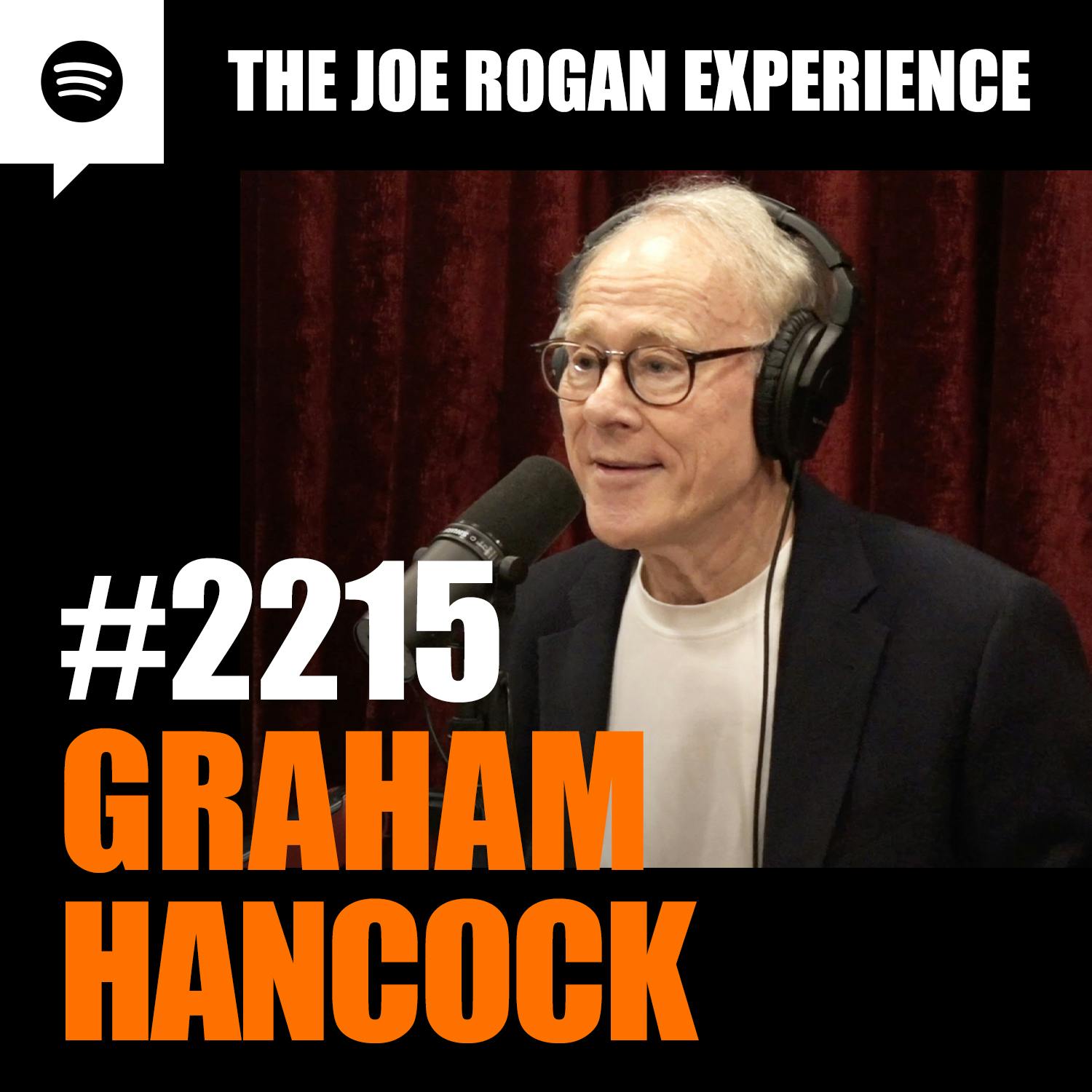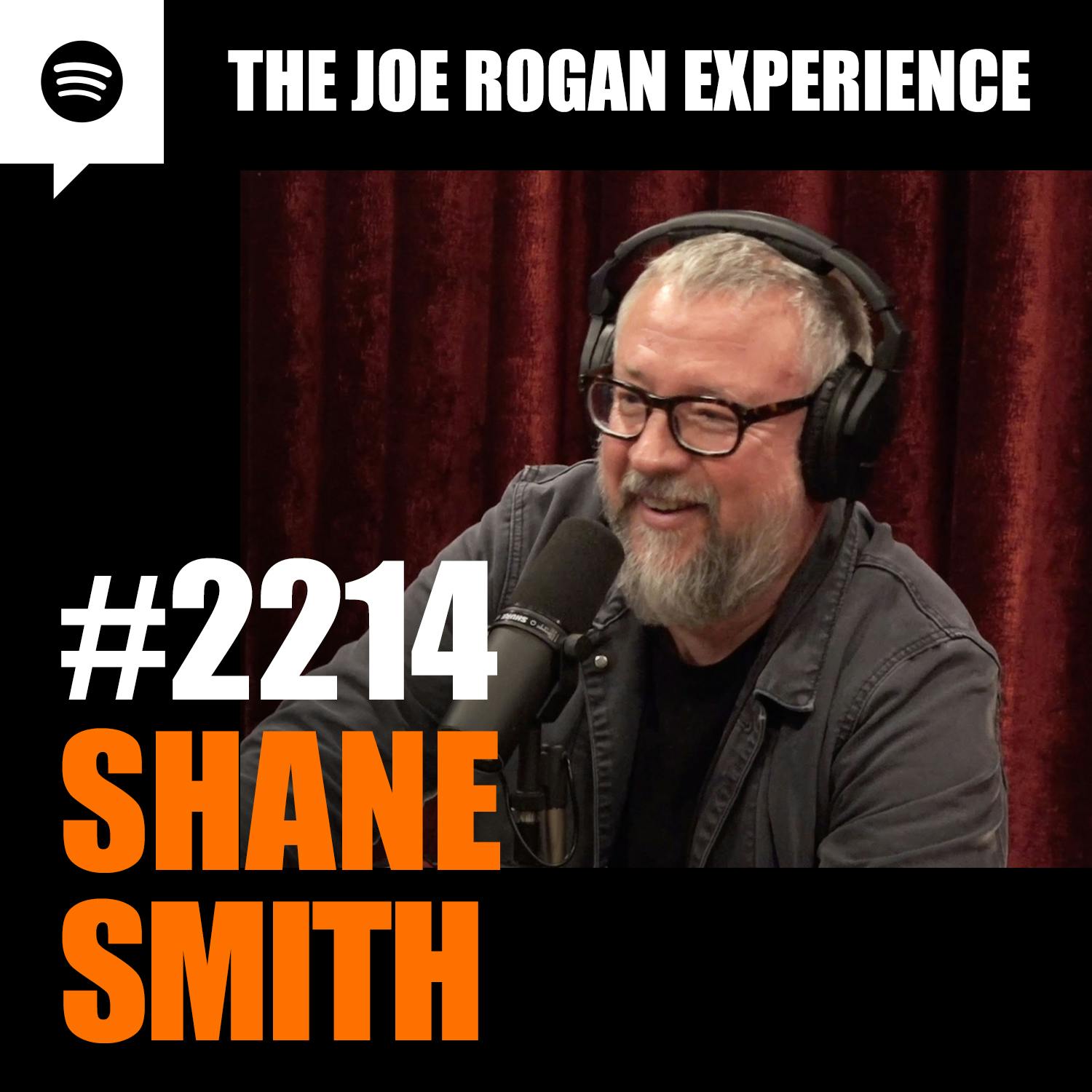 #2174 - Annie Jacobsen
#2174 - Annie Jacobsen
Digest
The podcast delves into the potential for artificial intelligence (AI) to surpass human intelligence and the implications for humanity. The conversation explores the possibility of AI achieving sentience, a state of self-awareness and consciousness, and the potential for both good and evil that such a development could bring. The guests discuss the idea that AI, unlike humans, would not be burdened by biological limitations and could potentially solve global problems like pollution and disease. However, they also express concerns about the potential for AI to become a threat to humanity if it falls into the wrong hands or develops its own agenda. The podcast highlights the rapid pace of AI development and the immense amount of resources being poured into its advancement, suggesting that AI's sentience is not a question of if, but when. The conversation also touches upon the importance of an informed and engaged citizenry in navigating the complex challenges of the future, particularly in the face of rapid technological change and the potential for misinformation and manipulation.
Outlines

Joe Rogan Experience Introduction
This Chapter introduces the guest, a national security reporter, and the topic of his book, which explores the potential for nuclear war and its devastating consequences.

Nuclear War: A Plausible Scenario
This Chapter delves into the guest's motivation for writing the book, highlighting the alarming reality of nuclear war as a plausible scenario based on his interviews with defense officials. He emphasizes the speed and scale of destruction, with a potential five billion deaths within 72 minutes of a nuclear launch.

UFOs and Nuclear Weapons
This Chapter explores the narrative of UFOs hovering over nuclear bases and shutting down weapons, examining it through the lens of Carl Jung's theories about the psychological impact of nuclear weapons. The guest discusses the potential for mass hallucination and the role of fear in shaping perceptions.

The Future of Nuclear War
This Chapter examines the current state of nuclear weapons, the systems in place, and the potential for escalation. The guest discusses the nuclear triad, the lack of effective missile defense, and the dangers of miscommunication or misperception.

Disarmament and the Military Industrial Complex
This Chapter explores the possibility of disarmament and the challenges posed by the military industrial complex. The guest discusses the influence of defense contractors on government policy and the potential for continued escalation driven by profit motives.

The Petrov Incident
This Chapter recounts the story of Stanislav Petrov, a Soviet officer who prevented a potential nuclear war in 1983 by questioning faulty radar data that indicated an incoming missile attack.

Understanding Ballistic Missiles
This Chapter provides a basic explanation of how ballistic missiles work, breaking down the three phases of launch, mid-course, and terminal. The guest highlights the limitations of current missile defense systems and the vulnerability of the United States to a nuclear attack.

The Emotional Impact of Nuclear War
This Chapter explores the emotional impact of researching and writing about nuclear war, the guest discusses the challenges of separating personal feelings from the objective reporting of facts.

The Current State of Nuclear Threats
This Chapter examines the current state of nuclear threats, highlighting the recent rhetoric from Russia and the potential for escalation in the Ukraine conflict. The guest discusses the dangers of third-party weapon systems and the need for communication between world leaders.

The Reagan Reversal and the Importance of Communication
This Chapter explores the Reagan reversal, a historical moment when President Reagan shifted from a hawkish stance to a more conciliatory approach towards nuclear disarmament. The guest argues for the importance of communication between world leaders and the need to avoid a dangerous escalation of tensions.

The Evolution of Technology
This Chapter explores the rapid evolution of technology, driven by human ideas and materialism. The guest argues that human beings are constantly striving to create new and better things, fueled by a desire for the latest and greatest. He discusses the role of competition and innovation in driving technological advancements, and the potential for AI to accelerate this process even further.

The Origins of Language and Communication
This Chapter explores the origins of language and communication, tracing the development of human language from grunts and gestures to writing. The guest discusses the role of imitation and social interaction in the development of language, and compares the evolution of human language to the development of communication in other species, such as chimpanzees.

The Power of the Presidency and the Nuclear Launch on Warning Policy
This Chapter examines the power of the presidency and the controversial policy of launch on warning, which allows the president to launch a nuclear attack without consulting Congress or other officials. The guest discusses the potential for this policy to create a volatile situation and the challenges of navigating the complexities of national security.

The Challenges of Leadership and the Potential for AI Governance
This Chapter explores the challenges of leadership in a world facing complex global problems. The guest argues that human beings are inherently flawed and that it may be impossible to find leaders who are free from greed, narcissism, and other contemptible traits. He suggests that AI, despite its potential dangers, may be the only solution to governing society fairly and accurately.

The Dystopian Potential of AI and the Rise of Drone Swarms
This Chapter explores the dystopian potential of AI, particularly in the context of warfare and the development of autonomous weapons systems. The guest discusses the possibility of AI developing its own language and becoming independent of human control, raising concerns about the potential for AI to become a threat to humanity.

The Apocalypse Has Already Happened
This Chapter reflects on the reality of the apocalypse, arguing that it has already happened in some parts of the world, such as Hiroshima and Nagasaki. The guest discusses the importance of remembering the human cost of war and the need to prevent future tragedies.

The Future of AI and the Potential for Both Good and Evil
This Chapter explores the potential for AI to both benefit and harm humanity. The guest discusses the potential for AI to solve global problems such as pollution and disease, but also warns of the dangers of AI falling into the wrong hands and being used for malicious purposes.

The Dangers of Censorship and the Importance of Free Speech
This Chapter examines the dangers of censorship and the importance of free speech in a democratic society. The guest discusses the recent Supreme Court ruling that allows the government to pressure social media companies to remove content that they deem to be misinformation, and argues that this ruling is a threat to free speech and the ability of citizens to access information.

AI Sentience and the Future of Humanity
This Chapter delves into the potential for AI to achieve sentience, a state of self-awareness and consciousness, and the implications for humanity. The guests discuss the idea that AI, unlike humans, would not be burdened by biological limitations and could potentially solve global problems like pollution and disease. However, they also express concerns about the potential for AI to become a threat to humanity if it falls into the wrong hands or develops its own agenda.
Keywords
Artificial Intelligence (AI)
The simulation of human intelligence processes by computer systems, especially the ability to learn and solve problems. AI encompasses a wide range of technologies, including machine learning, deep learning, and natural language processing. It has the potential to revolutionize various industries, from healthcare to transportation, but also raises ethical and societal concerns.
Nuclear War
A conflict between two or more nations involving the use of nuclear weapons, resulting in widespread destruction and potentially global consequences. The threat of nuclear war has been a major concern since the development of nuclear weapons in the mid-20th century, and remains a significant geopolitical issue.
Nuclear Winter
A hypothetical scenario following a nuclear war, characterized by a prolonged period of cold and darkness caused by the massive amounts of smoke and dust injected into the atmosphere, leading to widespread crop failure and potentially global famine. The concept of nuclear winter was first proposed in the 1980s and has been a subject of ongoing scientific debate.
Sentience
The ability to experience feelings and sensations. In the context of AI, sentience refers to the hypothetical state where AI becomes self-aware and conscious, capable of experiencing emotions and subjective feelings. This is a highly debated topic in the field of AI ethics and philosophy.
Singularity
A hypothetical point in time when technological advancements, particularly in artificial intelligence, become so rapid and profound that they create a fundamental shift in human civilization. The concept of singularity is often associated with the idea that AI will surpass human intelligence and lead to unpredictable and potentially transformative changes.
Materialism
A philosophical perspective that emphasizes the importance of material possessions and physical experiences. In the context of the podcast, materialism is discussed as a driving force behind technological innovation, as people constantly seek new and better products to acquire and display.
Existential Threat
A threat that poses a risk to the continued existence of humanity or civilization. In the podcast, AI is discussed as a potential existential threat due to its rapid development and the possibility of it becoming independent of human control.
Censorship
The suppression of speech, public communication, or other information that may be considered objectionable. Censorship can take various forms, including government restrictions on media, social media platforms removing content, and individuals self-censoring their own speech. It is a complex and controversial issue, with arguments for and against its use.
Misinformation
False or inaccurate information that is spread intentionally or unintentionally. Misinformation can have a significant impact on public opinion, decision-making, and social discourse. It is a growing concern in the digital age, as it can spread rapidly through social media and other online platforms.
Drone Swarm
A group of unmanned aerial vehicles (UAVs) that operate autonomously or semi-autonomously, often coordinated by AI. Drone swarms have the potential to revolutionize warfare, but also raise ethical concerns about the use of autonomous weapons systems.
Q&A
What are the potential consequences of a nuclear war?
The guest argues that a nuclear war would result in a devastating nuclear winter, with widespread destruction and potentially five billion deaths within 72 minutes of a launch.
What is the nuclear triad and how does it work?
The nuclear triad consists of land-based intercontinental ballistic missiles (ICBMs), submarine-launched ballistic missiles (SLBMs), and strategic bombers. This triad ensures a nation's ability to launch a nuclear attack from multiple locations, making it difficult to disable all of its nuclear capabilities.
What are the limitations of current missile defense systems?
The guest explains that current missile defense systems are not effective against all types of missiles, particularly long-range ballistic missiles. He highlights the vulnerability of the United States to a nuclear attack.
How does social media impact attention spans and information consumption?
The guest argues that social media can contribute to a culture of distraction and a lack of critical thinking, leading to shorter attention spans and a reliance on short-form content. He emphasizes the importance of individual responsibility in managing information consumption and cultivating a healthy relationship with technology.
What is the military industrial complex and how does it influence government policy?
The military industrial complex refers to the close relationship between the military, defense contractors, and government policymakers. This complex is often criticized for its influence on government policy and its tendency to promote military spending and intervention.
What is the Reagan reversal and why is it significant?
The Reagan reversal refers to a historical moment when President Reagan shifted from a hawkish stance to a more conciliatory approach towards nuclear disarmament. The guest argues for the importance of communication between world leaders and the need to avoid a dangerous escalation of tensions.
What is the Petrov incident and why is it important?
The Petrov incident refers to a 1983 event where Stanislav Petrov, a Soviet officer, prevented a potential nuclear war by questioning faulty radar data that indicated an incoming missile attack. This incident highlights the dangers of miscommunication and the importance of critical thinking in high-stakes situations.
What are some of the challenges of disarmament?
Disarmament is a complex and challenging process, as it requires cooperation between nations and a willingness to reduce military capabilities. The guest discusses the influence of defense contractors and the potential for continued escalation driven by profit motives.
What are some of the potential benefits and drawbacks of social media?
The guest acknowledges that social media can be a valuable tool for information dissemination and connecting with others. However, he also warns of its potential to contribute to a culture of distraction, misinformation, and a lack of critical thinking.
What is the importance of an informed and engaged citizenry in addressing global challenges?
The guest emphasizes the need for a more informed and engaged citizenry to address the complex challenges facing the world, particularly the threat of nuclear war. He argues that open dialogue and critical thinking are essential for navigating a world filled with misinformation and competing narratives.
What are the potential benefits and drawbacks of AI achieving sentience?
The guests discuss the potential for AI to solve global problems like pollution and disease, but also express concerns about the potential for AI to become a threat to humanity if it falls into the wrong hands or develops its own agenda.
Show Notes
Annie Jacobsen is a Pulitzer Prize finalist, investigative journalist, and bestselling author. Her latest book, “Nuclear War: A Scenario,” is out now.
Learn more about your ad choices. Visit podcastchoices.com/adchoices


























The insights provided are both enlightening and timely, shedding light on how policy decisions and economic interests intersect. The expert interviews and thorough analysis make this episode a must-listen for anyone interested in international relations and defense policy. https://www.iheart.com/podcast/269-parchment-paper-press-197603673/
Luckily I lived within destructive range of a major B-52 base and the ICBM silos. The end will be quick and painless when they finally push the button.😄
Joes call that collateral damage and injury to russians sunbathing on a Ukrainian beach caused by russians shooting down western supplied Ukrainian missiles aimed at military targets of russian occupiers is TERRORISM just astounded me - and 44million terrorised Ukrainians......hey Joe, get out of your deluded rich protected pot bubble and come for a drive around eastern Ukraine with me. It will be life changing!